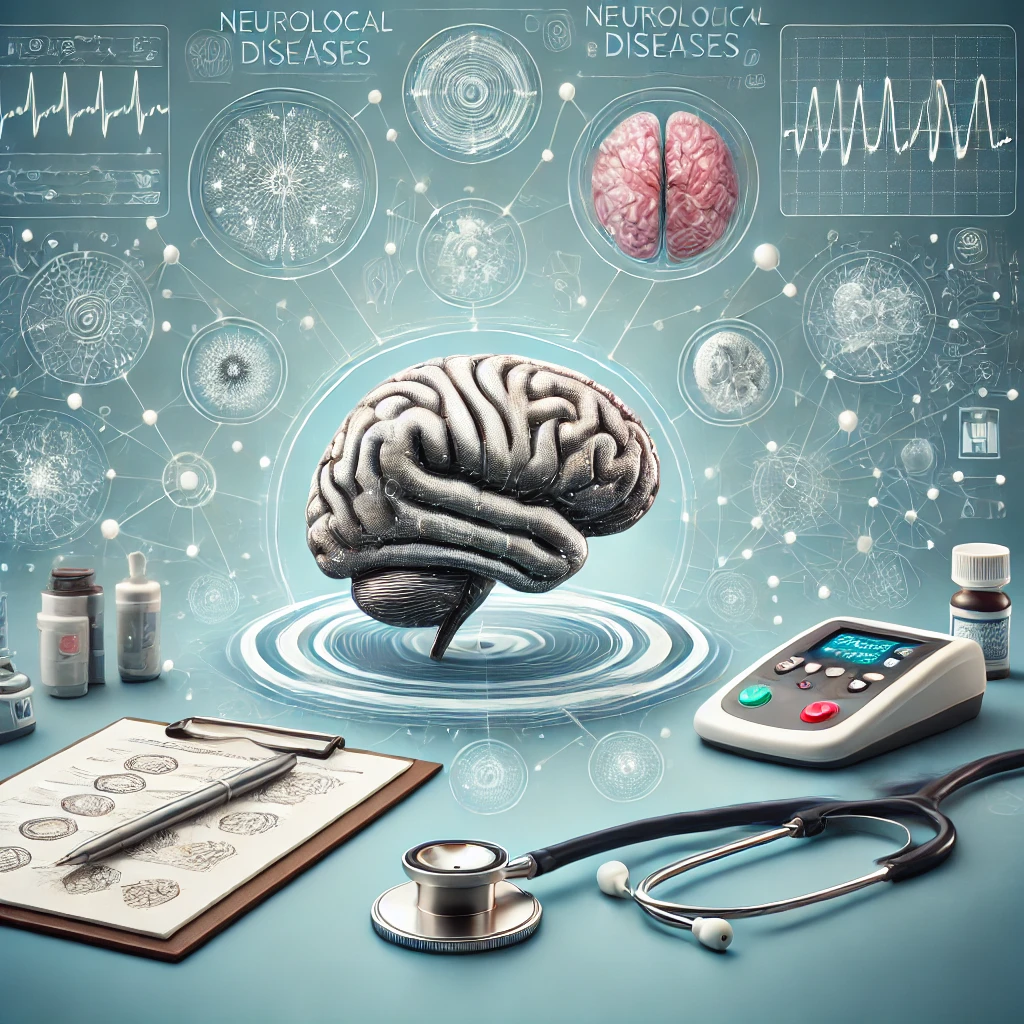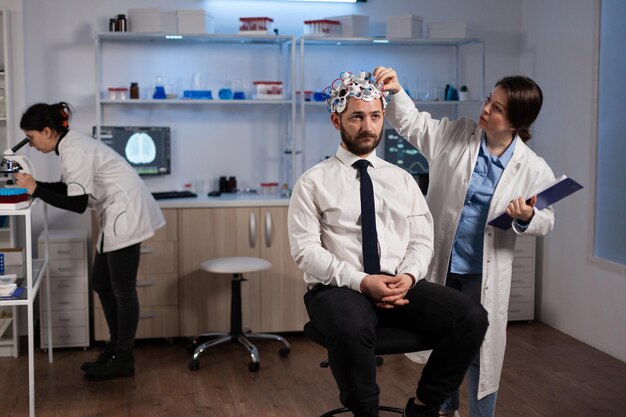Introduction diseases affect millions worldwide, disrupting daily life and causing significant health challenges. From migraines to complex disorders like Parkinson’s disease, understanding these conditions is essential for effective management. Doctorhub360.com neurological diseases provide insights into these conditions, helping patients and caregivers navigate the complexities with ease.
This blog delves into the causes, symptoms, and treatment options for common neurological diseases, offering a reader-friendly and SEO-optimized guide for those seeking information.
What Are Neurological Diseases?
Neurological diseases refer to disorders of the nervous system, which includes the brain, spinal cord, and peripheral nerves. These conditions can range from mild to severe, affecting movement, sensation, cognitive abilities, and even basic bodily functions.
According to Doctorhub360.com neurological diseases, understanding these conditions begins with recognizing their diverse nature. Neurological diseases can be broadly classified into the following categories:
- Degenerative Disorders: Conditions like Alzheimer’s and Parkinson’s disease.
- Neuromuscular Disorders: Disorders affecting muscles and nerves, such as multiple sclerosis.
- Seizure Disorders: Like epilepsy, characterized by sudden electrical disturbances in the brain.
- Infections: Conditions like meningitis or encephalitis caused by bacteria, viruses, or fungi.
Common Causes of Neurological Diseases
While the causes vary, some common factors contribute to the onset of neurological conditions:
1. Genetic Predisposition
Certain conditions, like Huntington’s disease, are inherited. Family history plays a significant role in such cases.
2. Infections
As per Doctorhub360.com neurological diseases, infections like meningitis or HIV can directly impact the nervous system.
3. Trauma
Injuries to the brain or spinal cord due to accidents can result in lifelong neurological challenges.
4. Lifestyle Factors
Chronic stress, unhealthy diets, and lack of physical activity can increase the risk of neurological diseases.
Recognizing Symptoms of Neurological Diseases
Early detection is critical in managing neurological disorders. Symptoms often vary depending on the disease but may include:
- Headaches: Persistent or severe headaches can indicate underlying issues.
- Loss of Sensation: Numbness or tingling in limbs.
- Cognitive Impairments: Memory loss or confusion.
- Muscle Weakness: Difficulty in movement or coordination.
- Speech Difficulties: Slurred or slow speech.
When to Seek Medical Help
If you or a loved one experience persistent symptoms, consulting a specialist through Doctorhub360.com neurological diseases is crucial for early intervention.
Common Neurological Diseases and Their Management
1. Alzheimer’s Disease
A progressive disorder that causes memory loss and cognitive decline.
- Symptoms: Forgetfulness, disorientation, and mood swings.
- Management: Medications like donepezil, combined with cognitive therapies.
2. Parkinson’s Disease
A movement disorder caused by the loss of dopamine-producing neurons.
- Symptoms: Tremors, stiffness, and slow movement.
- Management: Medications (levodopa) and physical therapy.
3. Epilepsy
A chronic condition characterized by recurrent seizures.
- Symptoms: Convulsions, loss of consciousness, or unusual sensations.
- Management: Anti-seizure medications and lifestyle modifications.
4. Multiple Sclerosis (MS)
An autoimmune disorder where the immune system attacks the protective covering of nerves.
- Symptoms: Fatigue, vision problems, and muscle spasms.
- Management: Immunotherapy and physical rehabilitation.
5. Migraine
Severe headaches often accompanied by nausea and sensitivity to light.
- Symptoms: Throbbing pain, usually on one side of the head.
- Management: Pain relievers, stress management, and dietary changes.
For more details on managing these conditions, visit Doctorhub360.com neurological diseases for expert advice.
Prevention Tips for Neurological Diseases

While not all neurological conditions are preventable, certain measures can reduce your risk:
1. Maintain a Healthy Diet
Eating a balanced diet rich in omega-3 fatty acids, vitamins, and antioxidants supports brain health.
2. Regular Exercise
Physical activity improves circulation and reduces the risk of neurodegenerative diseases.
3. Avoid Substance Abuse
Limiting alcohol and avoiding drugs can protect your nervous system.
4. Manage Stress
Chronic stress negatively impacts brain function. Incorporate relaxation techniques like meditation.
5. Protect Against Injuries
Wear helmets and seatbelts to prevent trauma to the brain and spine.
Role of Technology in Managing Neurological Diseases
The integration of technology into healthcare has revolutionized the management of neurological disorders. Platforms like Doctorhub360.com neurological diseases provide:
- Access to Specialists: Connect with neurologists for virtual consultations.
- Symptom Tracking Tools: Apps to monitor and manage symptoms.
- Educational Resources: Detailed guides and articles for patient awareness.
- Telemedicine Services: Convenient follow-ups from the comfort of your home.
Advancements in Neurological Disease Research
Researchers are making significant strides in understanding and treating neurological conditions:
- Gene Therapy: Promising for genetic disorders like Huntington’s.
- Neuroprosthetics: Devices to restore lost functions.
- Stem Cell Therapy: Potential treatment for degenerative diseases like ALS.
Stay updated on these advancements by exploring Doctorhub360.com neurological diseases regularly.
Emotional and Psychological Impact
Living with a neurological condition often affects mental health. Patients may experience:
- Anxiety and depression due to physical limitations.
- Social isolation stemming from communication difficulties.
- Frustration with slow recovery or limited treatment options.
Doctorhub360.com neurological diseases emphasizes the importance of counseling and support groups in addressing these challenges.
Importance of Early Diagnosis
Timely diagnosis improves treatment outcomes significantly. Advanced imaging techniques like MRI and CT scans are crucial in detecting neurological abnormalities. Regular check-ups and awareness of early symptoms are vital.
Consulting platforms like Doctorhub360.com neurological diseases can help guide you to the right resources for early intervention.
Conclusion
Neurological diseases encompass a wide range of conditions, each presenting unique challenges. Understanding the causes, symptoms, and management options empowers patients and caregivers to take informed steps toward better health.
By leveraging the resources available at Doctorhub360.com neurological diseases, individuals can access expert guidance, cutting-edge technology, and comprehensive care. Whether you’re looking to learn more about a specific condition or seeking support for managing symptoms, this platform offers invaluable assistance.
Stay proactive, prioritize your health, and explore the world of neurological care with Doctorhub360.com.

